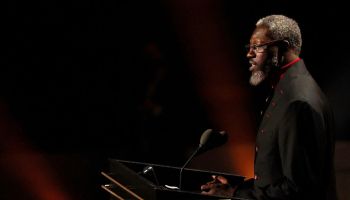CHARLOTTE – Retelling President Obama’s life story and her own, Michelle Obama’s speech Tuesday at the Democratic convention grounded her husband’s policy initiatives in personal terms.
Both Obamas grew up with little money, financed their education with loans and watched family members struggle with illness and discrimination, she said. The result: President Obama’s first-term priorities of overhauling health care, reducing student indebtedness and providing pay equity for women, Michelle Obama said.
“In the end, for Barack, these issues aren’t political — they’re personal,” the first lady said. “Barack knows what it means when a family struggles. He knows what it means to want something more for your kids and grandkids. Barack knows the American Dream because he’s lived it — and he wants everyone in this country to have that same opportunity, no matter who we are, or where we’re from, or what we look like, or who we love.”
Four years ago, Michelle Obama’s convention speech was designed in part to mend her own image — “I love this country” she made a point of saying. In the White House, she focused on helping military families and encouraging exercise and healthy diets for children.
Now a popular first lady, she is working to shift her public approval to her husband with a warm, positive speech that sought to remind voters that of the personal virtues they seemed to embrace in his candidacy four years ago.
“I have seen firsthand that being president doesn’t change who you are — it reveals who you are,” she said.
She reminisced about the early days of their marriage, when she said the couple’s student loan payments were higher than their mortgage. “We were so young, so in love, and so in debt,” she said. He was “a kindred spirit,” she said.
“Barack and I were both raised by families who didn’t have much in the way of money or material possessions but who had given us something far more valuable — their unconditional love, their unflinching sacrifice and the chance to go places they had never imagined for themselves.”
Some of her speech echoed the one Ann Romney gave last week in Tampa: a portrait of a young couple in love coping with work-family stress. “Date night for Barack and me was either dinner or a movie, because as an exhausted mom, I couldn’t stay awake for both,” she said. Romney invoked the ironing board turned into a dining table; the first lady described a coffee table her husband found in the trash.
Her story of growing up working-class in Chicago, the daughter of a water plant worker who suffered from multiple sclerosis, and her husband’s of being raised by a single mother and his grandparents may be familiar to voters from 2008. Yet it provided an implicit contrast to the middle-class-turning-into-wealth story of the Romneys.
The first lady also seemed to be rebutting GOP efforts to portray Democrats as resenting wealth and success.
“Our families weren’t asking for much,” she said. “They didn’t begrudge anyone else’s success or care that others had much more than they did — in fact, they admired it.”
The convention’s first night featured people talking about how their own lives have been affected by the administration’s policies, including the health care overhaul and the endorsement of same-sex marriage. Michelle Obama’s plan, the campaign said, was to talk about the reverse: how her husband’s life and values had affected his policy.
She cast Obama as steady and persistent — “when we’re worried that the bill won’t pass, and it seems like all is lost — Barack never lets himself get distracted by the chatter and the noise. … He just keeps getting up and moving forward … with patience and wisdom and courage and grace.”
And she asked voters to stay the course, saying it is the president who “reminds me that we are playing a long game here. Change is hard, and change is slow, and it never happens all at once. But eventually we get there; we always do.”











